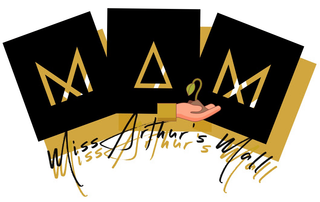Brace yourself and be prepared
- by Marvolyn Arthur
- •
- 15 May, 2018
- •

Every parent knows when there is something not right with their child but it is even heart breaking when your child seems perfectly alright but he/she is unable to achieve the required milestone for their age. One could understand if there is a physical deformity associated with the inability to do something. Whereas when there is no such physical evidence, it is very scary and confusing.
Personally it is the biggest challenge I have had to deal with; I had to take time off work to educate myself and learn to communicate and understand my child. The dynamics of parenting children with learning disabilities is totally different, I have had to view things from my son’s perspective and seek ways to demonstrate to him the social norms also taking into consideration his sensory difficulties and reactions. His attention span is less than 30 seconds so there is the need to set targets on each developmental activity, keeping it simple and concise. The wrong approach would result in not achieving the target our interaction. Our major achievement in the past six months is making eye contact, we have progressed from no eye contact to a maximum of 3 good seconds. This was achieved by consistent funny facial interactions and putting object on my face ensuring he maintains interest in the activity. It is heart breaking and emotionally draining when your child shows no interest or whatsoever, but the key is being persistent, consistent and show so much love and affection. Each child may be different but the quest to succeed is the same.
Our blog aims to provide you with all the information the important information a parent needs to make their journey a bit more easy.
We gathered tips from parents who have 'been there' - hopefully these will help you to manage your diagnosis journey.
- Make a list of all the ways your child is affected by their disability or condition. This can be useful to show doctors at appointments, or people in schools or nurseries.
- Keep a record of your child's progress. Keep a diary, take photos and videos if possible. As well as being a useful record to show to doctors, it can also be comforting to look back and see the progress your child has made.
- Get a diary or a big wall calendar with loads of space to mark appointment times.
- Keep a paper trail. Keep copies of all letters, appointments, and test results in a folder. Keep a note of all the phone calls you make as well.
- Prepare the questions you want to ask at an appointment beforehand. Write these all down in an appointment notebook and take them along with you.
- Take a friend or relative along to your appointment so they can make notes while you talk. It can be hard to remember everything you are told - especially if you are upset.
- Do not be afraid to ask your specialist the questions that concern you - however silly or insignificant you think they may seem.
- If you feel that you need to see a specialist or if you think you may have somehow got 'lost in the system' - do not be afraid to phone. Ask to speak to the doctor's secretary to find out what is happening with your child's appointment.
- Use a combination of local services and specialised services that suit the needs of your family best - this will reduce stress, time and expense by not making long unncessary journeys. Make sure you let the professionals know this is your plan.
- Be persistent. If you feel all the ways to get a diagnosis for your child haven't been explored, then you can request a second opinion. You can go back to your GP and ask to be referred to a different specialist. Or if you are unhappy with your GP you can see another one.


